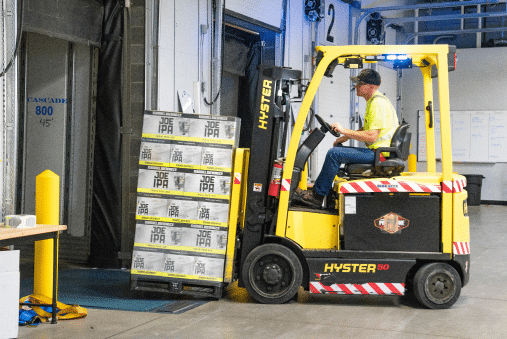
Essential Skills for Becoming a Forklift Operator
In a variety of sectors, including manufacturing, retail, and construction, forklift operators are essential. Among their duties are the safe and effective transportation of large goods as well as the maintenance of logistics and supply chains. There are several necessary talents to succeed in this in-demand warehousing job.
Technical Proficiency
Forklift Maintenance and Operation
- Equipment Knowledge: Being aware of the many kinds of forklifts and how they are used.
- Operation: The ability to start, steer, and stop a forklift with proficiency.
- Maintenance: Basic duties like monitoring tire pressure and fluid levels will help keep the forklift in optimal operating order.
Comprehending Load Limits
- Weight Distribution: The ability to evenly distribute loads to avoid tipping.
- Capacity Awareness: Recognizing the weight capacity of the forklift and never going over it.
Safety Skills
Safety Rules
- OSHA Guidelines: knowledge of the rules set forth by the Occupational Safety and Health Administration (OSHA) for using forklifts.
- Workplace Safety: Placing safety procedures into practice, including wearing the proper PPE and doing pre-operation inspections.
Hazard Awareness
- Preventive Measures: Reducing risks by removing obstructions and making sure there is enough ventilation when working indoors.
Motor Proficiencies
Manual Proficiency
- Hand-eye coordination and manual skill: the ability to precisely manage the forklift’s movements to maneuver in restricted places.
- Reflexes: Quick reaction speeds to prevent incidents and adjust to changing work conditions.
Physical Durability
- Endurance: Capacity to carry out strenuous physical activities, such as carrying large objects and putting in long hours.
- Strength: Sufficient physical strength to move objects and carry out manual labor.
Cognitive Capabilities
Attention to Detail
- Concentration: Keeping your focus on the task at hand to operate the forklift safely and effectively.
Problem-Solving
- Troubleshooting: Recognizing and fixing potential problems that may occur when operating a forklift.
- Adaptability: The capacity to change course quickly and come up with new plans.

Relational Abilities
Communication
- Reporting: Immediately recording and disclosing any problems or incidents.
- Teamwork: Collaborating well with others to accomplish shared objectives.
Qualification and Instruction
Formal Training
- Practical Experience: Acquiring real-world knowledge while being supervised.
- Updating oneself with the most recent safety procedures and industry standards requires continuous learning.
- Advanced Skills: Getting more certificates for sophisticated operations or specific forklift models.
Conclusion
To become a proficient forklift operator, one must possess a combination of technical expertise, physical prowess, and mental acumen. Operators must always put safety first in all that they do daily. Aspiring forklift operators can have a rewarding and fulfilling career in this important field with the correct training and dedication to ongoing improvement.
Next Steps
At NCW, our recruiters are dedicated to making personal connections with every job seeker. We don’t want to just help you find your next warehouse job, we want to match you with a company and role that will accelerate your career to wherever you want to go. We’ll handle all the boring admin stuff—resume prep, interview scheduling, contract negotiations—so you can focus on what you do best. Plus, NCW offers ongoing support throughout your role to help you keep climbing the career ladder.
Ready to discover your success in the field? Contact an NCW recruiter and find work in warehousing today!
